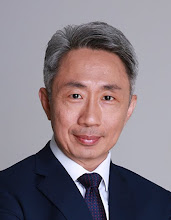As a panelist at ITB Asia last week, I received a list of 29 questions from the moderator.
Creative people are constantly questioning the things they see and experience: questioning assumptions, questioning authority, questioning reality and questioning the status quo. But questions can be tricky. The way we ask the question can impact the answer we get.
Clearly, leaders are looking for answers.
I learned early on that asking the right questions is the best way to help people find the answers. Good questions are often far more powerful than answers. Good question challenge your thinking. They reframe and redefine the problem. They are powerful tools to get directly to the heart of the matter, the key to opening locked doors.
In ancient history, Socrates and Jesus used questions to great effect. In the 20th century, intellectuals such as Albert Einstein and Peter Drucker loved to ask provocative questions.
What do you think? are four potent and irresistible words. It is one of the most powerful motivating forces in human nature. People crave two things above all else. They seek appreciation and they want someone to listen to them.
Because of Steve Jobs' unparalleled innovation and drive, Apple became the most valuable tech company in the world. Jobs is famous for his intense question "Is this the best you can do?" which infuses Apple's corporate culture. This is an exceptionally powerful question. Use it and it will help others achieve things they did not believe possible.
This may surprise you: I often do not learn from my experiences. I often race headlong from one activity to the next, never pausing to reflect. Setbacks are great teachers, but so are successes. To help myself get the most out of my experiences, nowadays, I ask myself: What did I learn?
How many times a day do we say "If only...?" If we could create the perfect life, the perfect home, the perfect job, the perfect mate.
If you could, in retrospect, change one thing about your childhood, what would it be?
If you could return for one year to one age in your life, knowing what you know now, to relive that year as you wish, which year would you go back to?
If you could have personally witnessed one event in history, what would you want to have seen?
If you could be guaranteed one thing in life besides money, what would you ask for?
We all fantasize and we all dream. We dreamed as children and we dream now because without our fantasies we would be lost. We imagine in order to learn, to understand, to strive, to attempt, to predict, to avoid, to correct, to describe, to solve. Everybody, old or young, fat or thin, intelligent or not, from one culture or another, has the ability and inclination to wonder.
Creative people are constantly questioning the things they see and experience: questioning assumptions, questioning authority, questioning reality and questioning the status quo. But questions can be tricky. The way we ask the question can impact the answer we get.
Clearly, leaders are looking for answers.
I learned early on that asking the right questions is the best way to help people find the answers. Good questions are often far more powerful than answers. Good question challenge your thinking. They reframe and redefine the problem. They are powerful tools to get directly to the heart of the matter, the key to opening locked doors.
In ancient history, Socrates and Jesus used questions to great effect. In the 20th century, intellectuals such as Albert Einstein and Peter Drucker loved to ask provocative questions.
What do you think? are four potent and irresistible words. It is one of the most powerful motivating forces in human nature. People crave two things above all else. They seek appreciation and they want someone to listen to them.
Because of Steve Jobs' unparalleled innovation and drive, Apple became the most valuable tech company in the world. Jobs is famous for his intense question "Is this the best you can do?" which infuses Apple's corporate culture. This is an exceptionally powerful question. Use it and it will help others achieve things they did not believe possible.
This may surprise you: I often do not learn from my experiences. I often race headlong from one activity to the next, never pausing to reflect. Setbacks are great teachers, but so are successes. To help myself get the most out of my experiences, nowadays, I ask myself: What did I learn?
How many times a day do we say "If only...?" If we could create the perfect life, the perfect home, the perfect job, the perfect mate.
If you could, in retrospect, change one thing about your childhood, what would it be?
If you could return for one year to one age in your life, knowing what you know now, to relive that year as you wish, which year would you go back to?
If you could have personally witnessed one event in history, what would you want to have seen?
If you could be guaranteed one thing in life besides money, what would you ask for?
We all fantasize and we all dream. We dreamed as children and we dream now because without our fantasies we would be lost. We imagine in order to learn, to understand, to strive, to attempt, to predict, to avoid, to correct, to describe, to solve. Everybody, old or young, fat or thin, intelligent or not, from one culture or another, has the ability and inclination to wonder.






No comments:
Post a Comment